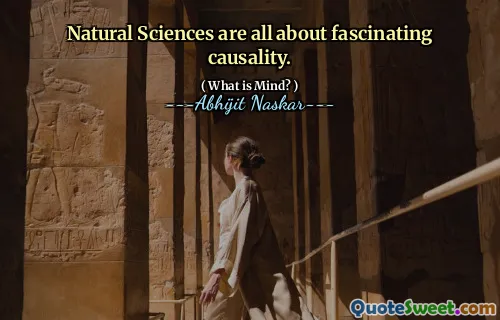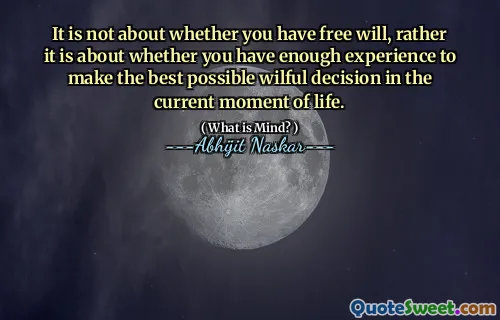
It is not about whether you have free will, rather it is about whether you have enough experience to make the best possible wilful decision in the current moment of life.
This quote prompts a profound reflection on the nature of human agency and the role of experience in decision-making. Often, we tend to debate the existence of free will as if it is an absolute, binary concept—either we are completely free or entirely dictated by external forces. However, the quote redirects focus from the metaphysical debate to a more pragmatic and experiential core: the importance of accumulated knowledge and understanding in making choices. Experience acts as a guiding light; it informs us of what has worked or failed in the past, thus enhancing our capacity to make choices that align with our highest good in any given moment. It underscores the idea that decision-making is not solely about an abstract concept of freedom but about developing awareness, wisdom, and insight through lived lessons. When we lack experience, our decisions may be haphazard or driven by impulse, which can lead to less optimal outcomes. Conversely, with more experience, even in the absence of absolute free will, our choices tend to reflect understanding, maturity, and a sense of responsibility. This perspective encourages us to value learning, reflection, and the growth that comes through life’s experiences. By doing so, we improve our ability to navigate complex situations, making choices that are more deliberate, informed, and aligned with our true intentions. Ultimately, the quote celebrates the power of experience as a crucial element in exercising what might be called a nuanced, practical form of free will—one rooted in wisdom rather than mere impulse or external control.







